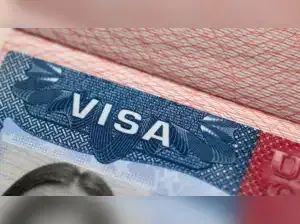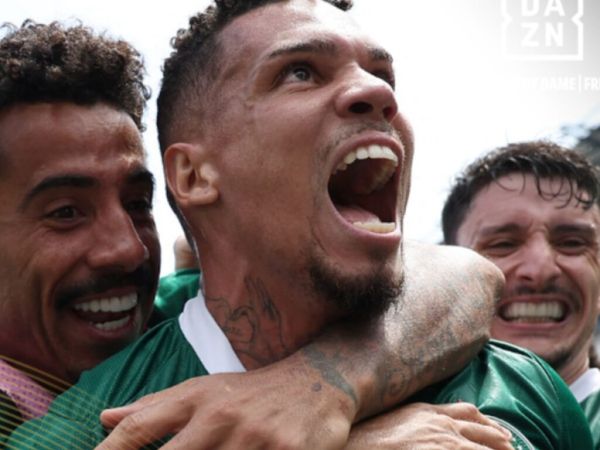New Delhi: About three years ago, Sameer (name changed to protect identity) was attending a college on the East Coast where he was on the editorial team of his student magazine. Yet, his name was conspicuously absent from any articles critical of US government policies. The student deliberately kept a low profile in public. Online, though, he was bolder.
As the admin of a spoof Instagram account, Sameer posted memes mocking then-presidential candidate Donald Trump's immigration policies and voiced support for a two-state solution to the Israel-Palestine conflict.
Now, in 2025, the same student is preparing to move to the West Coast for his master's degree and is staring down the US State Department's advisory to disclose all social media handles used over the past five years. To ensure a clean slate, he turned to a "digital undertaker" - a professional who sanitises online presence, effectively scrubbing away years of potentially problematic posts.
Sameer is not alone.
(Join our ETNRI WhatsApp channel for all the latest updates)
Indian students seeking to study in the US are walking a fine line between digital expression and caution, say experts.
“Students applying for F, M or J visas have been creating alternative social media accounts for some time,” said Manisha Zaveri, joint managing director of Career Mosaic. “It allows students to maintain a curated, public-facing profile for visa scrutiny while preserving a private space for personal expression.” Zaveri said these dual identities are not new, but the motivations have evolved.
What once began as a teenage desire for anonymity now serves a more strategic purpose, say experts.
Nikhil Jain, founder of ForeignAdmits, noted a sharp rise in digital self-monitoring since the Israel-Gaza conflict flared up in 2023.
“Some students have deleted their LinkedIn accounts altogether. Others have erased pro-Palestine posts after realising that their study-abroad dreams might be at risk,” he said.
Jain has built AI tools to pre-screen social media profiles for potential red flags, and consultations now routinely include deep dives into students’ digital pasts.
But he warns against abrupt deletions. Given the possibility of embassies serving notices to social media platforms to provide additional access to certain suspect profiles on the pretext of national security, he said, “Visa counsellors have advised students not to delete posts abruptly, warning that sudden changes could also raise red flags.”
Students are now in a Catch-22 situation. Jain adds “Your online persona now carries legal weight. It is not just about filtering out hate speech or extremist views. It is about every casual political opinion, every meme, every reposted reel from your student days.”
Vibha Kagzi, founder of ReachIvy.com, advises students to steer clear of certain topics: “Consular officers will look for posts, comments, or associations that indicate hostility towards the US, connections with banned groups, or hateful commentary.”
For Sachin Jain, country manager India and South Asia, ETS India, this digital duality is less a red flag and more a sign of sophistication.
“Students are learning to treat online identity as an extension of their application. They are segmenting communication, with one profile for university interactions and another reserved for peer networks,” he said.
The shift, he argues, is part of a broadening of digital literacy, where students are segmenting their audiences just as professionals do.
Others are simply relocating their online personas to alternative platforms that offer anonymity and privacy.
In addition to platforms like Telegram and Discord, nowadays “students are increasingly using Reddit to express themselves openly as it doesn’t reveal their original identity,” said Aditya Shanker Raghuwanshi, founder of Masterclass Space.
Private communication over Snapchat has also become an alternative due to its built-in privacy features and focus on ephemeral content, he added.
As the admin of a spoof Instagram account, Sameer posted memes mocking then-presidential candidate Donald Trump's immigration policies and voiced support for a two-state solution to the Israel-Palestine conflict.
Now, in 2025, the same student is preparing to move to the West Coast for his master's degree and is staring down the US State Department's advisory to disclose all social media handles used over the past five years. To ensure a clean slate, he turned to a "digital undertaker" - a professional who sanitises online presence, effectively scrubbing away years of potentially problematic posts.
Sameer is not alone.
(Join our ETNRI WhatsApp channel for all the latest updates)
Indian students seeking to study in the US are walking a fine line between digital expression and caution, say experts.
Dreams at Risk
They are finding ways to game the system—curating public profiles while offloading their real thoughts to “spam” or pseudonymous accounts, using encrypted apps and niche platforms.“Students applying for F, M or J visas have been creating alternative social media accounts for some time,” said Manisha Zaveri, joint managing director of Career Mosaic. “It allows students to maintain a curated, public-facing profile for visa scrutiny while preserving a private space for personal expression.” Zaveri said these dual identities are not new, but the motivations have evolved.
What once began as a teenage desire for anonymity now serves a more strategic purpose, say experts.
Nikhil Jain, founder of ForeignAdmits, noted a sharp rise in digital self-monitoring since the Israel-Gaza conflict flared up in 2023.
“Some students have deleted their LinkedIn accounts altogether. Others have erased pro-Palestine posts after realising that their study-abroad dreams might be at risk,” he said.
Jain has built AI tools to pre-screen social media profiles for potential red flags, and consultations now routinely include deep dives into students’ digital pasts.
But he warns against abrupt deletions. Given the possibility of embassies serving notices to social media platforms to provide additional access to certain suspect profiles on the pretext of national security, he said, “Visa counsellors have advised students not to delete posts abruptly, warning that sudden changes could also raise red flags.”
Students are now in a Catch-22 situation. Jain adds “Your online persona now carries legal weight. It is not just about filtering out hate speech or extremist views. It is about every casual political opinion, every meme, every reposted reel from your student days.”
Vibha Kagzi, founder of ReachIvy.com, advises students to steer clear of certain topics: “Consular officers will look for posts, comments, or associations that indicate hostility towards the US, connections with banned groups, or hateful commentary.”
For Sachin Jain, country manager India and South Asia, ETS India, this digital duality is less a red flag and more a sign of sophistication.
“Students are learning to treat online identity as an extension of their application. They are segmenting communication, with one profile for university interactions and another reserved for peer networks,” he said.
The shift, he argues, is part of a broadening of digital literacy, where students are segmenting their audiences just as professionals do.
Others are simply relocating their online personas to alternative platforms that offer anonymity and privacy.
In addition to platforms like Telegram and Discord, nowadays “students are increasingly using Reddit to express themselves openly as it doesn’t reveal their original identity,” said Aditya Shanker Raghuwanshi, founder of Masterclass Space.
Private communication over Snapchat has also become an alternative due to its built-in privacy features and focus on ephemeral content, he added.





